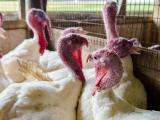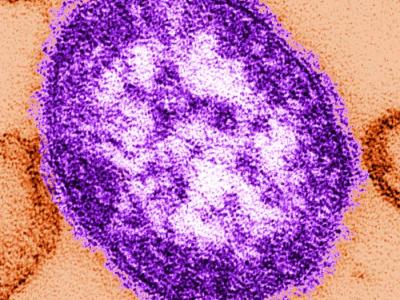Apr 6, 2010
Graded-dose flu shots may be safe for egg-allergic patients
A study from Children's Hospital Boston suggests that egg-allergic patients do not need a vaccine skin test before receiving an influenza vaccine, provided the vaccine is given in two graded doses. The hospital gave egg-allergic patients a prevaccination skin test for four flu seasons. Starting in 2007-08, the hospital dropped the skin test and gave egg-allergic patients the vaccine in two graded doses (10% and 90% of a standard dose). Of 56 patients who received the skin test and went on to vaccination, 95% tolerated it without a serious reaction. Of 115 patients who were vaccinated without the skin test, 97% had no serious reaction. Writing in Pediatrics, the authors conclude that the graded-dose approach with no skin test may be safe for patients who have an egg allergy without a history of anaphylaxis.
Apr 5 Pediatrics report
Egyptian woman dies of H5N1 infection
An 18-year-old Egyptian woman whom the country's health ministry reported as Egypt's latest H5N1 avian influenza patient has died, Daily News Egypt reported yesterday. She was from Fayoum governorate, southwest of Cairo, and had been hospitalized at Al-Fayoum Fever Hospital since Mar 31, according to an Apr 4 statement from Egypt's State Information Service. The reports did not list the source of the woman's infection. If the World Health Organization confirms the woman's illness and death, she will be listed as Egypt's 109th H5N1 patient and 34th fatality.
North Dakota co-op recalls beef heads as BSE precaution
A North Dakota cooperative has recalled 25,000 pounds of beef cattle heads because the tonsils may not have been fully removed, which would break a rule intended to limit the spread of bovine spongiform encephalopathy (BSE), or mad cow disease, the US Department of Agriculture (USDA) announced yesterday. The recall was made by North Dakota Bison Co-op of New Rockford, the USDA said. Tonsils are considered a specified risk material (SRM)—a tissue known to contain the infective agent in cattle that have BSE. The USDA prohibits the use of SRM in human food and requires its removal from cattle of all ages, because eating BSE-infected meat is believed to be the cause of the human form of BSE, known as variant Creutzfeldt-Jakob disease. The cattle heads were processed between Jun 25, 2009, and Feb 19 and were shipped to distribution centers in Maryland, Colorado, and Minnesota for further sale, the USDA said. The agency said the problem was discovered during a routine inspection at the facility. Only three BSE cases have been identified to date in the United States, the last in March 2006.
Apr 5 USDA news release


















